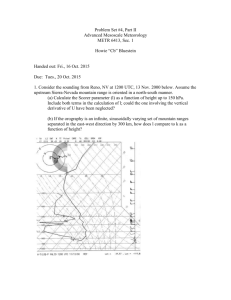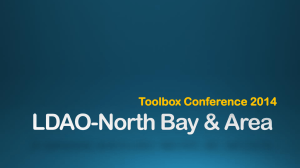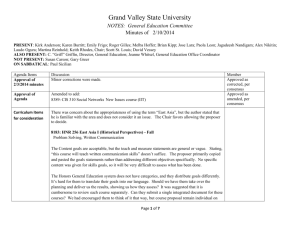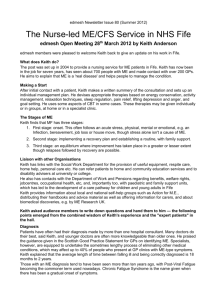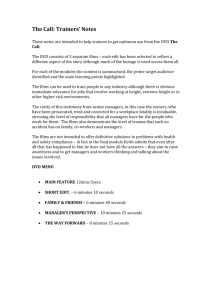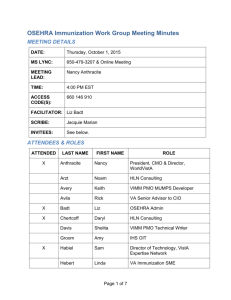project management * aps 1001 - Engineering Graduate Studies
advertisement
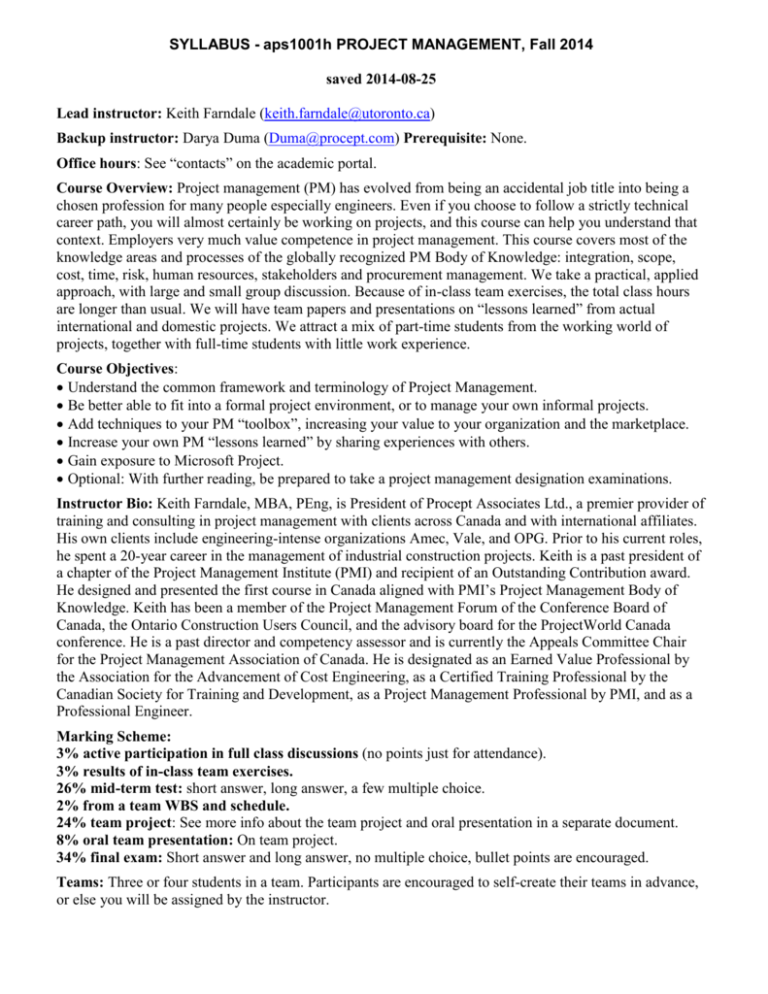
SYLLABUS - aps1001h PROJECT MANAGEMENT, Fall 2014 saved 2014-08-25 Lead instructor: Keith Farndale (keith.farndale@utoronto.ca) Backup instructor: Darya Duma (Duma@procept.com) Prerequisite: None. Office hours: See “contacts” on the academic portal. Course Overview: Project management (PM) has evolved from being an accidental job title into being a chosen profession for many people especially engineers. Even if you choose to follow a strictly technical career path, you will almost certainly be working on projects, and this course can help you understand that context. Employers very much value competence in project management. This course covers most of the knowledge areas and processes of the globally recognized PM Body of Knowledge: integration, scope, cost, time, risk, human resources, stakeholders and procurement management. We take a practical, applied approach, with large and small group discussion. Because of in-class team exercises, the total class hours are longer than usual. We will have team papers and presentations on “lessons learned” from actual international and domestic projects. We attract a mix of part-time students from the working world of projects, together with full-time students with little work experience. Course Objectives: Understand the common framework and terminology of Project Management. Be better able to fit into a formal project environment, or to manage your own informal projects. Add techniques to your PM “toolbox”, increasing your value to your organization and the marketplace. Increase your own PM “lessons learned” by sharing experiences with others. Gain exposure to Microsoft Project. Optional: With further reading, be prepared to take a project management designation examinations. Instructor Bio: Keith Farndale, MBA, PEng, is President of Procept Associates Ltd., a premier provider of training and consulting in project management with clients across Canada and with international affiliates. His own clients include engineering-intense organizations Amec, Vale, and OPG. Prior to his current roles, he spent a 20-year career in the management of industrial construction projects. Keith is a past president of a chapter of the Project Management Institute (PMI) and recipient of an Outstanding Contribution award. He designed and presented the first course in Canada aligned with PMI’s Project Management Body of Knowledge. Keith has been a member of the Project Management Forum of the Conference Board of Canada, the Ontario Construction Users Council, and the advisory board for the ProjectWorld Canada conference. He is a past director and competency assessor and is currently the Appeals Committee Chair for the Project Management Association of Canada. He is designated as an Earned Value Professional by the Association for the Advancement of Cost Engineering, as a Certified Training Professional by the Canadian Society for Training and Development, as a Project Management Professional by PMI, and as a Professional Engineer. Marking Scheme: 3% active participation in full class discussions (no points just for attendance). 3% results of in-class team exercises. 26% mid-term test: short answer, long answer, a few multiple choice. 2% from a team WBS and schedule. 24% team project: See more info about the team project and oral presentation in a separate document. 8% oral team presentation: On team project. 34% final exam: Short answer and long answer, no multiple choice, bullet points are encouraged. Teams: Three or four students in a team. Participants are encouraged to self-create their teams in advance, or else you will be assigned by the instructor. Required Textbook: A Guide to the PM Body of Knowledge (PMBOK® Guide) 5th ed, Project Management Institute, 2013. It will be available in the bookstore, but you may prefer to buy in advance from on-line bookstores such as www.amazon.ca. Optional references: The Fast Forward MBA in Project Management, paperback, Eric Verzuh, Wiley 2011 is easy reading, is inexpensive, but is too light to be our required textbook. Max Wideman’s “PM Comparative Glossary” at www.maxwideman.com is an excellent free reference. The table of contents in the course notes references a number of Wikipedia pages. Microsoft Project: The popular software Microsoft Project is available through your Dreamspark account. Only one team member needs it. Outline: The following is just a guide, actual timing will be somewhat different. Please read the textbook chapters in advance, and be prepared to discuss. Sept 5-Oct 3 (5 classes) 1 Introduction 2 Integration Management 3 Stakeholder Management 4 Scope Management 5 Time Management Possibly start 6 Cost Management Oct 10, No class. Oct 17, Mid-term during regular class time. Oct 17-Nov 28 (7 classes) Complete 6 Cost Management 7 Communications Management 8 Procurement Management 9 Risk Management 10 Human Resource Management Oct 27, Final date to tell me your preferred teams, then I will assign and publish team list on Oct 29. Nov 8, Microsoft Project MPP file with WBS and schedule due by midnight, one per team, by email. Nov 28, Dec 5, Team presentations (hours may be extended). Dec 7, Team paper due by midnight, www.turnitin.com. Dec 12, Time to be confirmed, final exam.


